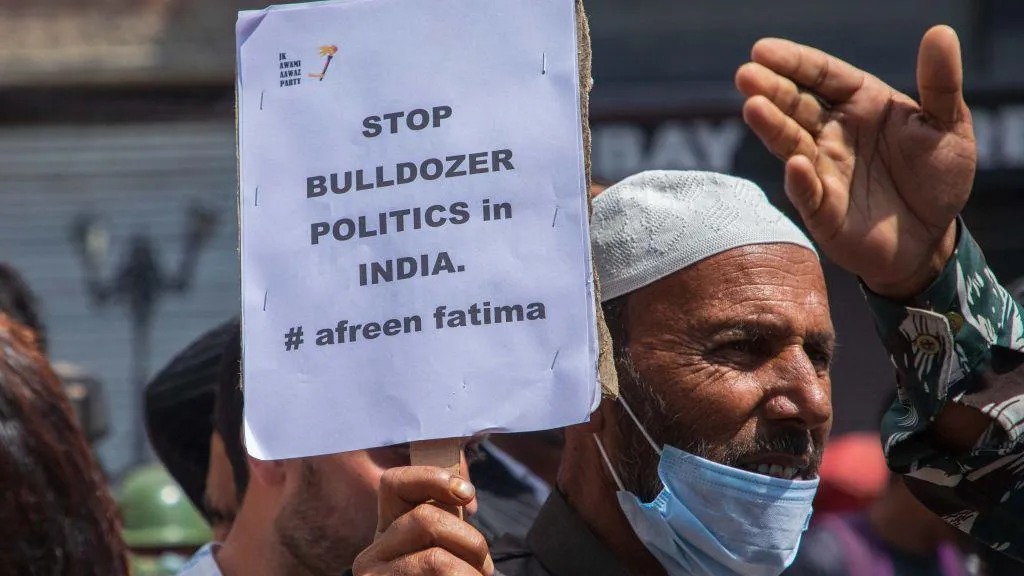
India’s Supreme Court Bans ‘Bulldozer Justice’ as Punishment
India’s Supreme Court has taken a firm stance against the practice of “bulldozer justice”, declaring that authorities cannot demolish homes simply because a person is accused of a crime. This ruling sets a significant precedent, as the court laid out clear guidelines on the limits of demolition as a punitive measure, ensuring that citizens’ rights are protected within a constitutional framework.
Background on ‘Bulldozer Justice’ in India
The ruling comes amid rising cases of extrajudicial demolitions across India, particularly in states governed by the Bharatiya Janata Party (BJP). In recent years, authorities have demolished properties under the guise of removing “illegal constructions,” often targeting individuals involved in protests or accused of crimes. However, critics argue that these actions primarily impact Muslim communities, with opposition leaders and activists pointing to a pattern of discrimination.
During Wednesday’s hearing, the Supreme Court condemned the practice, stating that the government should not act as judge and executioner by demolishing properties. “The sight of a bulldozer demolishing a building brings to mind a form of lawlessness,” the court said, emphasizing that such acts have no place in a constitutional democracy.
New Guidelines to Curb Extrajudicial Demolitions
The court’s ruling introduced specific guidelines that authorities must follow before initiating a demolition. These include:
- Mandatory 15-Day Notice: Authorities must give a 15-day notice to the property owner, detailing the reasons for the demolition.
- Right to Challenge: The occupant must have an opportunity to challenge the order or vacate the premises.
- Documenting the Process: If the demolition proceeds, authorities must film the process to maintain transparency.
The court emphasized that failure to adhere to these guidelines would be considered contempt of court, with violators facing legal repercussions. The decision underscores the importance of due process and accountability, aligning with constitutional values.
Reaction to the Ruling and the Path Forward
The Supreme Court’s decision has received positive responses from human rights advocates and organizations. Amnesty International praised the ruling, calling it a long-awaited step toward upholding the rights of minority communities and curbing unjust practices. “This is a significant win in ending unlawful, punitive demolitions targeting minority communities, often branded as ‘bulldozer justice’ by political leaders,” Amnesty said in a statement.
Observers note that while the ruling is a step in the right direction, effective enforcement will be essential to prevent further abuses. Some remain cautious, as similar judicial directives have faced challenges in practical implementation, particularly in regions where political leaders have publicly supported punitive demolitions as a symbol of their “tough stance on crime.”
Implications for Minority Rights and Legal Reform
The ruling not only protects property rights but also addresses broader concerns about extrajudicial actions in India. The court’s recognition of citizens’ voices and its stance against the use of demolitions to silence dissent signal a commitment to preserving civil liberties. By setting boundaries on the use of demolitions, the Supreme Court reinforces the principle that justice must be dispensed within the limits of the law.
As India’s judiciary pushes back against the misuse of state power, the success of this ruling will ultimately depend on strict adherence by local authorities. Advocacy groups and citizens are hopeful that the decision will pave the way for more judicial protections against unlawful actions by the state.
External Link:
Read more about this landmark ruling





